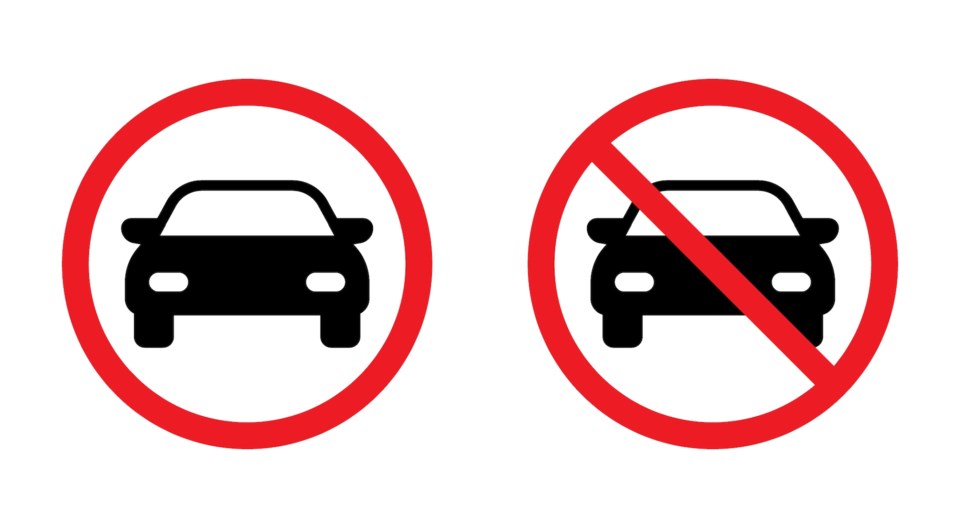Making Squamish a place where people are centred over vehicles is a laudable goal.
Canada and the U.S. have been far too car-dependent to the detriment of our pedestrian safety and our sense of community.
We haven’t always been this way.
In 1908, railways and streetcars were the dominant way people got around in Canada. There were just 3,003 registered cars in the country that year, according to a report by the not-for-profit organization, Transition Accelerator.
But by the 1930s, cars were the belle of the ball.
“Roads, traffic laws, and personal habits were being reshaped around them, while the car industry had become a major employer, and the railway and streetcar systems were in a death spiral,” reads the Transition Accelerator report.
We were happily addicted.
And now we are at a place where congestion, pollution and crashes caused by vehicles have collided with a frantic need to build more housing.
Indeed, the accelerator report notes that “current problems with the car-based transportation system could play a similar role in destabilizing the system today that overcrowding, lateness, and high fares played in destabilizing the railway system in the early twentieth century.”
With this backdrop, Squamish council approved a downtown rental building with 20 units and commercial space, which has zero parking.
This is too extreme.
Change is happening as we all feel the discomfort caused by our car culture, noted above, but forcing folks to give up their cars is not going to work here and now.
Two phenomena council should heed come to mind.
Policy misalignment occurs when well-intentioned initiatives—like promoting car-free living—result in unintended consequences such as increased street parking pressure.
Even with regional transit—should that ever come to pass—and better local transit and more bike lanes—there are still many things folks will need cars for.
Car-sharing can be great, but it doesn't work for everyone.
We aren’t ready for housing without parking.
The infrastructure isn’t there, and in spite of what some on the council think, we won’t be there by the time this building is occupied.
We would need amazing transit, a comprehensive medical system that doesn’t require us to leave town for treatment, well-paid jobs for all, a more robust education system, and more community amenities.
Another phenomenon that comes to mind is cultural lag.
Cultural lag is the period of adjustment for society to catch up to the speed of change.
Think of the rampant bootlegging during alcohol prohibition.
Balance and slow change are the best way to get where we all want to go.
Imposing change too fast will lead to backlash.
Meaning, this drastic move of zero parking is a road paved to hell for us all.



